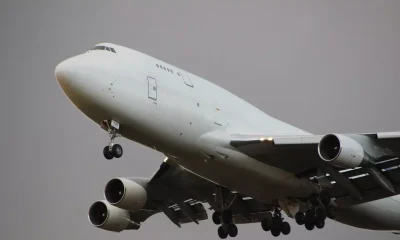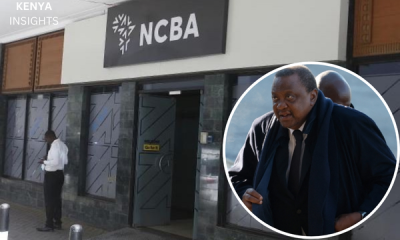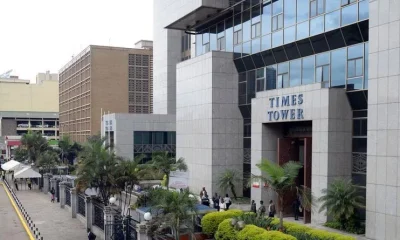Business
American Tobacco Firm Ordered To Pay KRA Sh23.7 Billion For Tax Evasion
Alliance One Tobacco Kenya Limited, a local subsidiary of the US-based Alliance One International, had argued that its tobacco processing activities were merely preparatory steps that did not amount to manufacturing.

The High Court has delivered a major victory to the Kenya Revenue Authority, ordering Alliance One Tobacco Kenya Limited to pay Sh23.746 billion in unpaid taxes after dismissing the company’s appeal against excise duty assessments.
Justice Francis Rayola Olel ruled that the American-owned tobacco processor’s operations constitute manufacturing and therefore attract excise duty, contrary to the company’s claims that its products should be classified as unmanufactured tobacco exempt from such taxes.
Alliance One Tobacco Kenya Limited, a local subsidiary of the US-based Alliance One International, had argued that its tobacco processing activities were merely preparatory steps that did not amount to manufacturing.
The company purchases raw tobacco from farmers in Kenya and Uganda, then performs stemming, threshing, and re-drying operations before supplying the processed tobacco to cigarette manufacturers including BAT Kenya, Mastermind Tobacco, and Estobac Kenya.
However, the court adopted the Tax Appeals Tribunal’s findings that these operations constitute “intermediate manufacturing” under Section 2 of the Excise Duty Act 2015.
The judge noted that the company’s processes involve removing thick stalks, grading to eliminate undesirable leaves, trimming ends, mechanical stripping, re-drying to customer-specified moisture levels of about 13 percent, and final packaging.
“Without doubt, this comprises an intermediate manufacturing process,” Justice Olel stated in his September 10 judgment.
“The tribunal did not err in finding that the appellant was liable to pay excise duty on its products based on the definition of manufacturing under the Excise Duty Act.”
The tax dispute originated when KRA investigations revealed that Alliance One processed tobacco through leased machinery at BAT facilities.
The revenue authority argued that transforming green leaf tobacco into graded, blended, and packed products tailored to customer specifications constitutes manufacturing under the law, which covers both production of excisable goods and “any intermediate or incomplete process” in their production.
KRA had initially demanded Sh25.802 billion in unpaid corporation income tax, value added tax, and withholding tax.
After additional documentation was provided through Ernst & Young, the Commissioner issued a fresh assessment for Sh39.804 billion including penalties and interest.
Following objections and alternative dispute resolution proceedings, the final assessment was reduced to Sh23.746 billion.
The tobacco company had protested what it termed excessive taxation, pointing out that while it sold its most expensive processed tobacco at approximately Sh600 per kilogram, the tax assessment sought to levy excise duty at Sh7,000 to Sh8,837 per kilogram—more than ten times the selling price.
However, the court noted that this complaint was not properly pleaded in the case.
The ruling reinforces KRA’s position that intermediate tobacco processing constitutes manufacturing for tax purposes.
In 2020, the authority had already issued a private ruling stating categorically that Alliance One’s processes involved manufacture and that taxes were payable.
This judgment follows similar precedents where KRA has successfully argued that intermediate processing constitutes manufacturing.
In 2020, the Tax Appeals Tribunal ordered Keroche Breweries to pay Sh9.1 billion after ruling that diluting vodka to produce ready-to-drink beverages constituted manufacturing a new product subject to excise duty.
The Sh23.746 billion tax liability is nearly equivalent to the total annual revenue of BAT Kenya, which earned Sh25.716 billion in 2024, highlighting the significant financial impact of the court’s decision on Alliance One Tobacco Kenya Limited.
Kenya Insights allows guest blogging, if you want to be published on Kenya’s most authoritative and accurate blog, have an expose, news TIPS, story angles, human interest stories, drop us an email on [email protected] or via Telegram
-

 Business2 weeks ago
Business2 weeks agoEastleigh Businessman Accused of Sh296 Million Theft, Money Laundering Scandal
-

 Investigations2 weeks ago
Investigations2 weeks agoInside Nairobi Firm Used To Launder Millions From Minnesota Sh39 Billion Fraud
-

 Business2 weeks ago
Business2 weeks agoMost Safaricom Customers Feel They’re Being Conned By Their Billing System
-

 News2 weeks ago
News2 weeks agoUnfit for Office: The Damning Case Against NCA Boss Maurice Akech as Bodies Pile Up
-

 News2 weeks ago
News2 weeks agoPastor James Irungu Collapses After 79 Hours Into 80-Hour Tree-Hugging Challenge, Rushed to Hospital
-

 News2 weeks ago
News2 weeks agoTax Payers Could Lose Millions in KWS Sh710 Insurance Tender Scam As Rot in The Agency Gets Exposed Further
-

 Business2 weeks ago
Business2 weeks agoEXPLOSIVE: BBS Mall Owner Wants Gachagua Reprimanded After Linking Him To Money Laundering, Minnesota Fraud
-

 News2 weeks ago
News2 weeks agoDeath Traps: Nairobi Sitting on a Time Bomb as 85 Per Cent of Buildings Risk Collapse






























